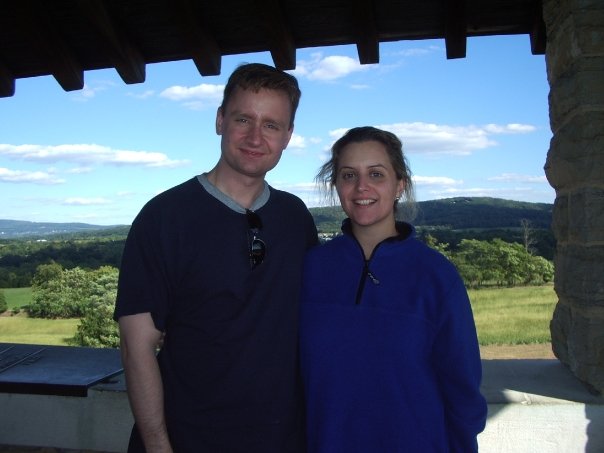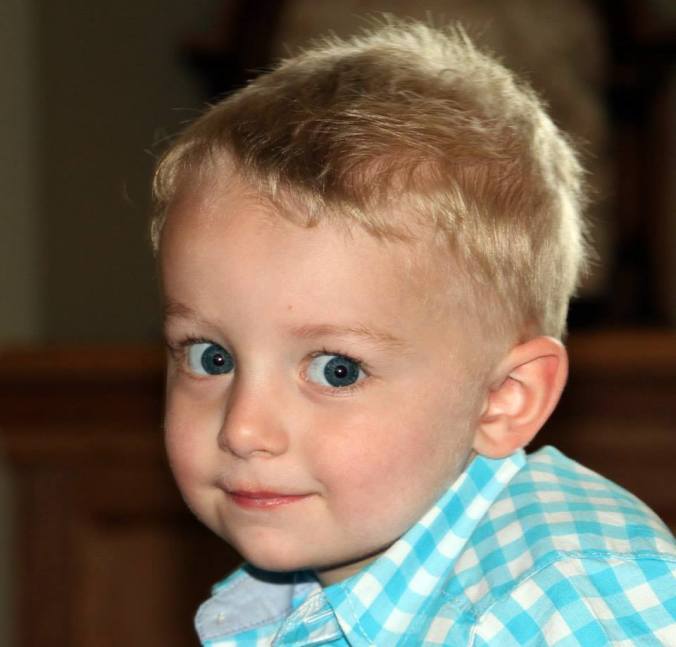I know I haven’t been alone among bloggers in finding it difficult to write over the past couple of months. Such sad, disturbing news we’ve had. It’s seemed to me like waves upon the shore: one powerful, jarring story crashes into us, then recedes into the background of our lives, only to have another follow before we’ve quite gained our footing.
There are the Central American children jostling to get into the United States… fire after return fire in Israel and Gaza… fighting and its unintended fallout in Ukraine… depression and suicide… Ebola in Western Africa… racial tensions re-emerging at home…
And Iraq. Oh, Iraq.
There, religious minorities have been systematically executed. Genocide is sought. Survivors flee. Whole dioceses have been emptied of their faithful. Women are raped and sold into slavery. People are ripped in two, cut in half, decapitated – even children suffer such atrocities.
How does one begin to process such horrors? How can I, tucked away in my comfortable home half a world away from those events, answer them with anything like an appropriate response?
For most of August, I didn’t want to ask myself that last question. While ISIS/ISIL/the group calling itself The Islamic State increasingly made itself known to the world, I lingered on the periphery of awareness. I learned enough to know that I didn’t want to learn more. And I reacted to the little I did learn with nothing more than a dull, heavy feeling in my chest and the desire to escape before I felt the horror of the situation more acutely.
But gradually (mostly through the admirable persistence of Elizabeth Scalia and her fellow Patheos writers), I was pulled out of my comfortable discomfort with events in Iraq. I shifted from the dull, uneasy urge to escape from the news to a sharper, more pressing realization that I’m obliged to pay attention. That I’m obliged to feel and pray and do whatever I can, however humble, to combat the evil that is spreading in that far-away land.
Because that’s what’s driving this: evil.
And I don’t mean “evil” in that secular way that reserves the term for only the most obviously bad, bad guys like Hitler. I mean it in the way that makes secularists most uncomfortable: evil as the work of the devil. “The evil we confront is not just an abstract idea, but an evil, fallen angel who wants to prevent our salvation.”*
I’m not suggesting that the devil has gone and animated a bunch of limp, unwilling (and therefore unaccountable) bodies to use as mere puppets. Nor am I suggesting that the members of ISIS are inherently evil, wholly incapable of doing good. No person is born so lost.
I’m just trying to call it like it is. When people do such terrible things to one another, I can’t help but see evil’s mark. I can’t help but envision evil seeping like a deadly, insidious disease from the heart of one man to another. And then another, and another, and another…
Some situations seem ripe for spectacular displays of evil. Evil must find fertile soil, after all, in lands where oppression, poverty, and war have been present for generations. What terrific places to be planting seeds of anger, fear, and hopelessness. What good chances that they’ll grow in individuals’ hearts until they spill over, manifesting themselves in violence and injustice towards others. What likelihood that those fruits will begin the cycle anew.
That’s how I think of the ISIS fighters: as men whose circumstances and life experiences have made them angry and resentful… men who have sought sympathy and camaraderie amongst those who would encourage their indignation… men who feel more powerful and more right the more they work together toward a dramatic goal… men who have so convinced themselves of their righteousness that they view those who are unlike them as less than human… men who start by seeing violence as a necessary tool and end by relishing violence for its own sake. I trace evil’s influence throughout.
But that – that far-away place, in those foreign hearts – is not the only place where evil lurks. Evil would not be content to bear only a few thousand ISIS souls away from God. Evil works on the rest of us too.
A few weeks ago at mass, a visiting priest spoke to us on evil. (It’s funny, isn’t it, when a topic that you’ve already been chewing on, even distracted by, comes back to you via someone else’s mouth?) He told us that evil works in four ways: Deception (making us think that evil is good), Division, Diversion (drawing our attention away from those things that are critical to our salvation), and Discouragement (making us think that God is not there).
We are all vulnerable to those tactics.
Evil tells us that what we have is insufficient, that we will always need more. It encourages us to nourish our anger and resentment. It emphasizes our fears. It helps us divide people into “us” and “them.” It tempts us to seek fleeting satisfactions that harm our bodies and souls. It entices us to take pleasure in media that glamorize violence and disordered relationships. It convinces us that righteous indignation is indeed righteous. It leads us to think we’re alone and unloved.
Evil finds success in such “small” things all the time, all over the world. I can’t help but wonder whether, when evil has become sufficiently emboldened by its quiet successes, perhaps that’s when it taunts us, leers at us, with acts so glaringly evil that we’re stopped short.
We don’t know what to make of beheadings and systematic executions. We don’t know what to make of atrocities committed against children or efforts to snuff out entire peoples. We learn of the horrors perpetrated by ISIS and we don’t know how to process them. Because even though we recall the evils of slavery and murder and abuse, of Hitler and Stalin and Rwanda, we’re sufficiently unused to thinking about evil that it makes no sense to us.
So we find ourselves today.
For weeks, I think most of the world – or at least those in the world who have been paying any attention to events in Iraq (and Syria; I shouldn’t neglect to note that ISIS is there too) – have been standing around, stunned. We’ve been allowing ourselves to be immobilized by the very evil we encounter all the time. It is more obviously demonstrated by ISIS, yes – but it is the same evil.
More recently, the gears seem to be slowly cranking to life. Many are still coping by looking away or minimizing the situation or proclaiming our inability to make a difference. But others are calling for action. Some are beginning to take it.
I won’t claim to know exactly how the United States can defeat ISIS. But I think doing so should be our goal. And I think it’s unreasonable to expect that we can do so entirely from a distance. An enemy that functions in cities and villages thick with innocent civilians can’t be eradicated by airstrike. And one that utilizes medieval methods of warfare can’t be fully defeated by 21st century technology. The sword will never be located as easily as the tank.
(By the way, I find it more than a little ironic that Vice-President Biden vowed that the United States will follow ISIS “to the gates of hell” while Secretary Kerry and President Obama have made it painfully clear that they do not intend to send American ground forces to Iraq or Syria. I suppose the message to ISIS should be that the United States intends to follow ISIS to the gates of hell, unless of course Iraq and Syria lie just before those gates. In which case the United States will wait patiently at their borders and simply wave ISIS on.)
At any rate, where does the situation leave those of us who are not policymakers? What role can we play in combatting the evil perpetrated by ISIS?
I can only tell you what I’m doing.
I’ve stopped hiding from the situation: I’m reading and listening and watching reports on what is happening. I’m paying attention. I’m writing about it.
I’m guarding against evil’s influence in my own life: I’m examining my motivations. I’m trying to be careful (and charitable) about what I think and say and do. I’m being watchful of the darkness that makes its way into my heart when I pursue certain topics or dwell on certain old hurts. I’m trying to do my small part to stop cycles of fear, anger, resentment, and injustice where I find them.
I’m praying: It’s been three years (that is, since the birth of my second child) since I regularly made time for daily prayer. It’s so hard with several littles underfoot to pick up that old (very healthy) habit, but I’m trying. I do my usual, random prayers cast up to God whenever I think of them, but I’m also working on carving out regular blocks of quiet time to devote to nothing but prayer. When I’m successful, I dedicate my blocks to the people of Iraq and Syria.
I know these small, quiet things are nothing like the magnitude of what it will take to defeat ISIS. However, I can’t help but hope that evil might back off the leering a bit if it finds that the leering generates an increase in prayer and charity throughout the world. So I try.
There are also more tangible contributions we can make. We can contact our Senators and Representatives to tell them we’re concerned about ISIS and that we think the United States should play a significant role in defeating it. (Click here for links to the Senate and House of Representatives.) We can donate to charities that provide aid to the peoples affected by fighting in the region. (Click here to reach Catholic Relief Services and the Catholic Near East Welfare Association.) We can write blog posts, letters to the editor, Facebook comments, make calls to radio shows… We can all find small ways to contribute.
In his speech last night, President Obama said, “We can’t erase every trace of evil from the world.” That may be true, but it doesn’t mean we shouldn’t try. Nor does it mean that we’re incapable of achieving triumphs over evil. Indeed, we all have roles to play in thwarting it. But we must begin, I think, by acknowledging that evil is real and that it is here. We need to be watchful. We need to be deliberate. We need to be brave.
* United States Catholic Catechism for Adults, United States Conference of Catholic Bishops, 2006, page 489


















